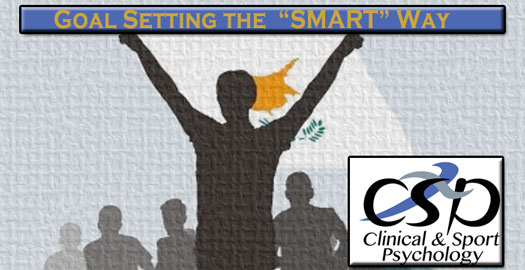The value in goal setting has been validated repeatedly as one of the most effective mental skills training techniques. However, when I question athletes about their current level of performance, they have great difficulty answering questions in specific terms. Let’s start with a few questions that can help one to begin the self assessment with effective goal setting: (a) Where do you want to go? (b) Where are you now? (c) What do you need to do to get there?
-
Be as Specific as possible and avoid lofty constructs. Consider placing your performance under a microscope and adjusting the lens until it come into clear focus. By doing so, you move from a vague ideal to behavioral specificity. For example, after a complete analysis of one’s game, a golfer may move from the ideal of, “I want to be a better golfer” to, “I really need to become a better putter”.
-
Make the goals as Measurable as possible. This is where simple data can be of great assistance. The golfer may say, “I average 38 putts per round”. I would like to drop that to 33 puts per round”. The most important part of measurement is to continue to track the data. Many times, people discontinue their process of measurement too soon.
-
Make the goals Attainable and Realistic. Research seems to suggest that a goal should be moderately challenging (i.e. between 5 to 15 percent above current standards of performance). Too often, this is where errors occur, as the athlete makes the goal past the point of moderation. Every golfer would love to drop a significantly greater number of strokes around the green; however, if the goal is too difficult motivation and self-confidence can be affected negatively. In contrast, if your goals is too attainable, adjust it to a higher level of difficulty. Once you attain your goal, you can move to a more challenging percentage.
-
Make your goals Timely. Set a reasonable amount of time to accomplish your goal, given the amount of time you can practice. Keep it real. Achieving a new goal needs to incorporate deliberate practice over a period of time. Stay positive in your mindset and understand that excellence comes from a series of smaller attained goals. It doesn’t happen all at once and there may be some plateaus in performance. That is all part of learning and developing as an athlete and person.
-
Lastly, keep in mind that Achieving a goal in practice may be different from performing in a competitive game or golf round when it really matters. One may need to set practice goals that are gradually introduced into competition.
If you haven’t yet realized this can be applied to all areas of life functioning.




